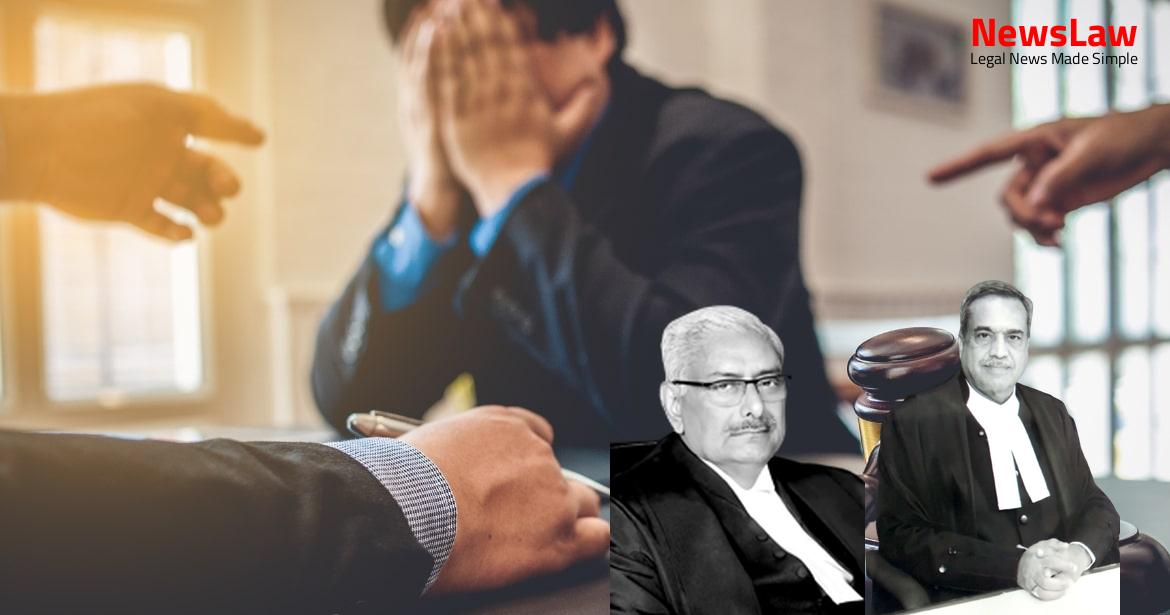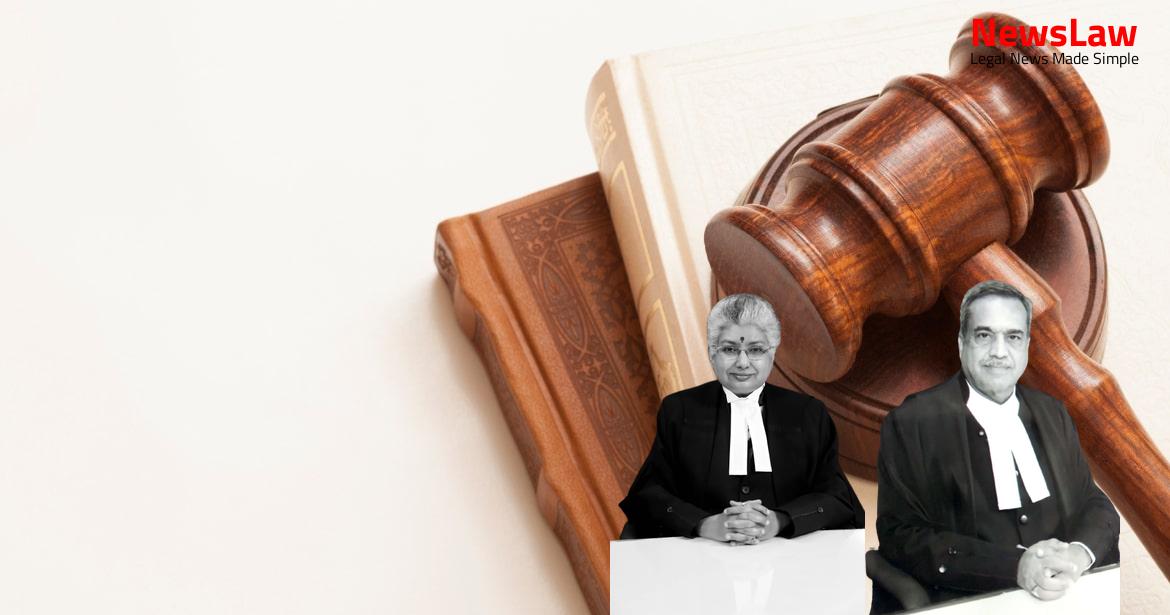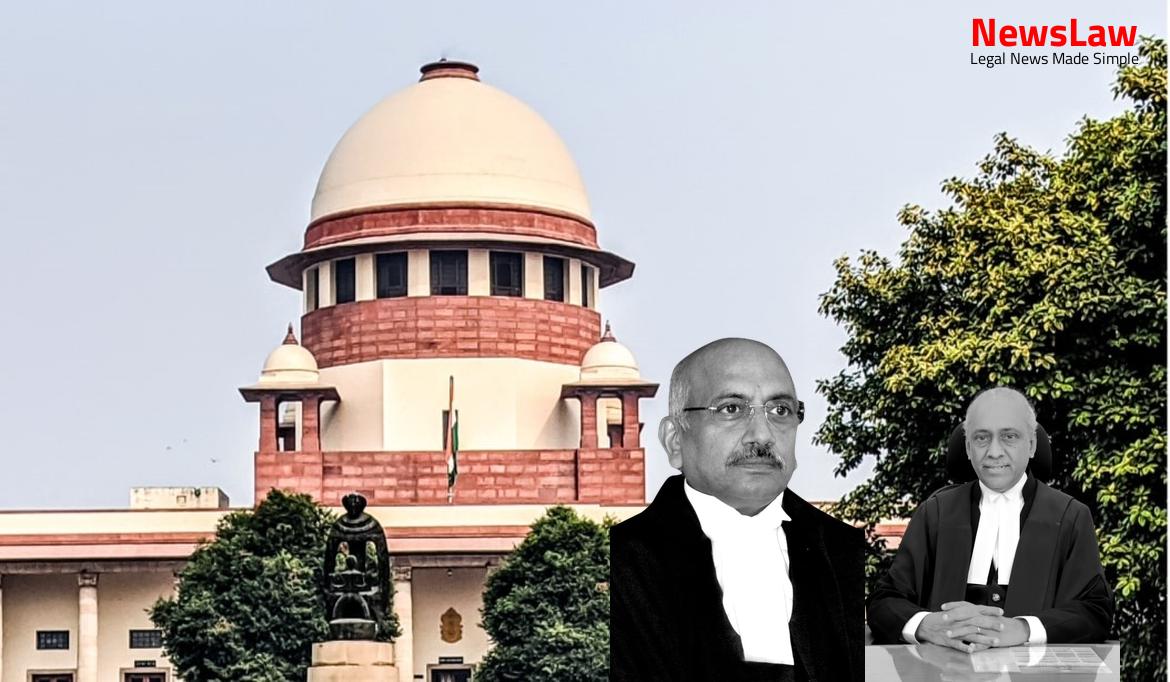Explore a detailed legal analysis focusing on the court’s examination of constitutional provisions and statutory mandates in the context of municipal elections. The judgment highlights the significance of adhering to reservation requirements, particularly for women and other marginalized communities. Follow the court’s scrutiny of election procedures, the role of the State Election Commission, and the implications of delays or non-compliance with electoral laws. Stay tuned to understand the pivotal role of the judiciary in upholding constitutional principles in electoral matters.
Facts
- The impugned order dated 04/02/2021 regarding the reservation of wards for certain municipal councils in the State of Goa was quashed and set aside.
- Writ Petition No.85 of 2021, 86 of 2021, 87/2021, 88/2021, 90/2021, 91/2021, 524/2021, and 525/2021 (Filing) were allowed.
- Writ Petition No. 92/2021 challenged the amendment to Section 10(1) and was also taken into consideration.
- Writ Petition No 515 of 2021 (filing) was dismissed.
- A Writ of Mandamus was issued to direct the Director to issue a fresh notification under Section 9 r/w. Section 10 of the Goa Municipalities Act, ensuring reservation for women.
- Electoral rolls were prepared and returning officers appointed for an ensuing election on 05.02.2021.
- The Governor of Goa appointed the Law Secretary as the State Election Commissioner on 03.11.2020.
- Nine writ petitions challenging the order of 04.02.2021 were filed between 09/02/2021 to 12/02/2021 and came up for final disposal on 22/02/2021.
- There was an understanding that the election schedule would not be notified till the disposal of the writ petitions.
- Nine Writ Petitions were filed challenging the reservation of seats in different Wards of Municipal Councils for the upcoming Municipal elections.
- There was contention regarding the advanced stage of the election process not warranting any relief to the Petitioners.
- The principle of rounding off was applied to the statute which required ‘not less two-third of the total number of members’, clarifying that a person’s vote cannot be expressed in fraction.
- Due to the COVID-19 Pandemic, the scheduled election on 22nd March 2020 was postponed, causing confusion and delays.
- The State Election Commissioner did not disclose important information to the Court regarding the proposed election date changes.
- The Court directed that notifications for reserving and/or rotating reserved seats should be issued at least two months before the date of issuance of the Notification under Rule 10(1) by which the election process begins.
- An amendment to the Goa Municipalities Act added a proviso requiring such orders to be issued at least 7 days before the date of notification of the General Elections.
Also Read: Limitation Period in Arbitration Disputes: Court’s Legal Analysis
Arguments
- The Election Commission of India v. Ashok Kumar case was relied upon for the proposition that faults during an ongoing election process can be addressed later through an election petition.
- The Director’s decision to reserve fewer seats for women than mandated by the constitution and statutes was found to be in breach of the law.
- The Advocate General admitted that there was a constitutional infraction in failing to reserve one-third of seats for women in specific municipal councils.
- The SEC claimed helplessness in addressing the infraction and stated they must proceed with the election based on the flawed order from the Director.
- Various cases were cited to support the notion that challenges to elections can only be made after the election process is complete.
- The SEC’s understanding was deemed unreasonable, and the Director’s misconceptions led to an invalid order that needed to be quashed.
- The Supreme Court emphasized the importance of rounding off fractions in elections to uphold the constitutional and statutory mandates.
- The judgment pointed out the obligation to reserve not less than one-third of seats for women in every municipality.
- The SEC’s failure to act independently was highlighted, jeopardizing the integrity of the election process.
- The Court’s duty to ensure compliance with constitutional and statutory reservations for women councilors was emphasized.
- The Director’s flawed impressions regarding reservations for women were deemed to violate the constitutional and statutory mandates.
- The understanding that reservations could be adjusted over multiple terms to comply with mandates was rejected as a justification.
- The Advocate General failed to provide a substantial defense for the Director’s non-compliance with reservation mandates.
- The SEC’s helplessness argument due to imminent elections was not considered sufficient to uphold an unconstitutional order.
- The SEC’s duty to timely conduct elections was emphasized, but it was also highlighted that this duty should not override constitutional and statutory reservations.
- The judgments in similar cases were cited to support the need for upholding constitutional and statutory reservations for women councilors.
- The validity of the impugned order was questioned due to gross misunderstandings of constitutional provisions by the Director.
- The Court emphasized that reservations must adhere to the constitutional and statutory mandates to ensure the validity of the election process.
- The
- hands-off
- doctrine
- does not legalize or immunize patently unconstitutional orders or enable the parties to create a situation fait accompli.
- The Director stated that the Petitioners’ contention finds no support in the Constitution or the Act.
- There is a discrepancy between the noting prepared and the Director’s affidavit regarding reservation of seats for SC or ST based on population concentration.
Also Read: Interpretation of Section 43B: Debentures vs. Interest Payment
Analysis
- The Delimitation Commission Act, 1962 is discussed in relation to various cases and provisions of the Constitution.
- The functioning of the State Election Commission is emphasized, including its powers and responsibilities in conducting elections.
- The importance of completing elections on time and resolving election disputes post-election is highlighted.
- The discussion includes the interpretation of Article 329(b) of the Constitution and its impact on challenging election procedures.
- Cases such as Mohinder Singh Gill and N.P. Ponnuswami are referred to in detailing the powers of the Election Commission.
- The role of the High Courts and Supreme Court in handling election-related disputes and challenges is outlined.
- The principle of conducting free and fair elections within the legal framework is underscored throughout the analysis.
- The need for adherence to the election laws and regulations, as well as the exclusivity of the Election Commission’s jurisdiction in electoral matters, is stressed.
- State Election Commissioners appointed under Article 243K must be independent persons.
- State Government delayed delimitation, reservation, and rotation of reserved seats despite reminders from SEC.
- Exercise of delimitation was completed only on 20.02.2020, just before the expiry of earlier members’ term.
- SEC’s forthcoming Notification was seen as a preemptive measure against potential challenges.
- The delay tactics were aimed at preventing Constitutional Court interference once the election process commenced.
- Any State Election Commissioners not meeting the criteria of independence should step down from office immediately.
- State Governments must ensure appointment of only independent individuals to the role of State Election Commissioner as mandated by Article 243K.
- The analysis of the judgment revolves around the application of various constitutional provisions and statutory mandates in the context of municipal elections.
- Key points discussed include the necessity for delimitation of wards, reservation of seats, and the role of the State Election Commission in supervising elections.
- The bar set by Article 243ZG in challenging election matters is emphasized, highlighting the importance of following due process in questioning election procedures.
- The significance of adhering to constitutional and statutory requirements for reservations, particularly regarding women and OBCs, is underscored throughout the analysis.
- Instances of flawed reservation processes, lack of rotation policy implementation, and arbitrary decision-making by the Director are scrutinized for non-compliance with the law.
- The intervention of the High Court, the State Election Commission’s responsibilities, and the implications of delays or mishandling of election procedures are thoroughly examined.
- The offices of Chairpersons in the Municipalities are reserved for Scheduled Castes, Scheduled Tribes, and women as per the State Legislature’s law.
- Each Municipal Council is a body corporate called ‘The Municipal Council’ with perpetual succession, power to acquire, hold, and dispose of property.
- Composition of Councils mandates reservation of seats for women, Scheduled Castes, Scheduled Tribes, and Other Backward Classes.
- The Director fixes the number of elected Councillors, reserved seats, and seats for the office of Chairperson based on population proportions.
- Reservation of seats ceases when related reservation in the House of the People under the Constitution ends.
- Orders for reservation of seats take effect for the next general election of the Council after issuance.
- State Election Commission is established for overseeing Municipal elections and preparing electoral rolls.
- Reservations for Scheduled Castes, Scheduled Tribes, and women in Municipalities are specified and allotted by rotation to different constituencies and wards.
- Provision for reservation of seats in Municipalities for backward classes is allowed by State Legislature.
- Elections to constitute a Municipality should be completed within the specified duration or six months after dissolution.
- Laws regarding elections to Municipalities are subject to the provisions of the Constitution.
- The State Election Commission is responsible for the superintendence, direction, and control of electoral rolls preparation and Municipal elections.
- Learned counsel Shri Gagan Gupta argued that the decision in K. Venkatachalam v. A. Swamickan (1999) 4 SCC 526 was applicable.
- The bar of jurisdiction under Article 243-ZG(b) was disputed by the learned counsel.
- It was contended that the writ petition under Article 226 could still be entertained based on the cited decision.
Also Read: Judicial Scrutiny of Arbitrary Taxation Statutes
Decision
- The writ petition challenged the reservation order dated 04.02.2021 and the notification dated 04.03.2021 in relation to elections in Municipal Councils in Goa.
- The High Court had set aside the reservation order dated 04.02.2021, leading to the need for a fresh election schedule to be notified.
- The Director is directed to rectify the illegalities highlighted in the judgment while giving weight to the observations made.
- The State Election Commission of Goa is instructed to promptly announce the election program in alignment with the Goa Municipalities (Election) Rules, 1969, aiming to complete the process by 15th April 2021.
- The Supreme Court stayed the impugned direction of the High Court and the Election Commission notification pending further proceedings.
- The writ petition was filed under Article 32 of the Constitution of India by a resident of Margao, Goa, contesting the reservation order and notification altering the election schedule.
- Direction under Article 142 is issued to ensure future adherence to the constitutional mandate of an independent State Election Commission for conducting elections under Part IX and IXA of the Constitution.
Case Title: THE STATE OF GOA Vs. FOUZIYA IMTIAZ SHAIKH (2021 INSC 179)
Case Number: C.A. No.-000881-000881 / 2021



